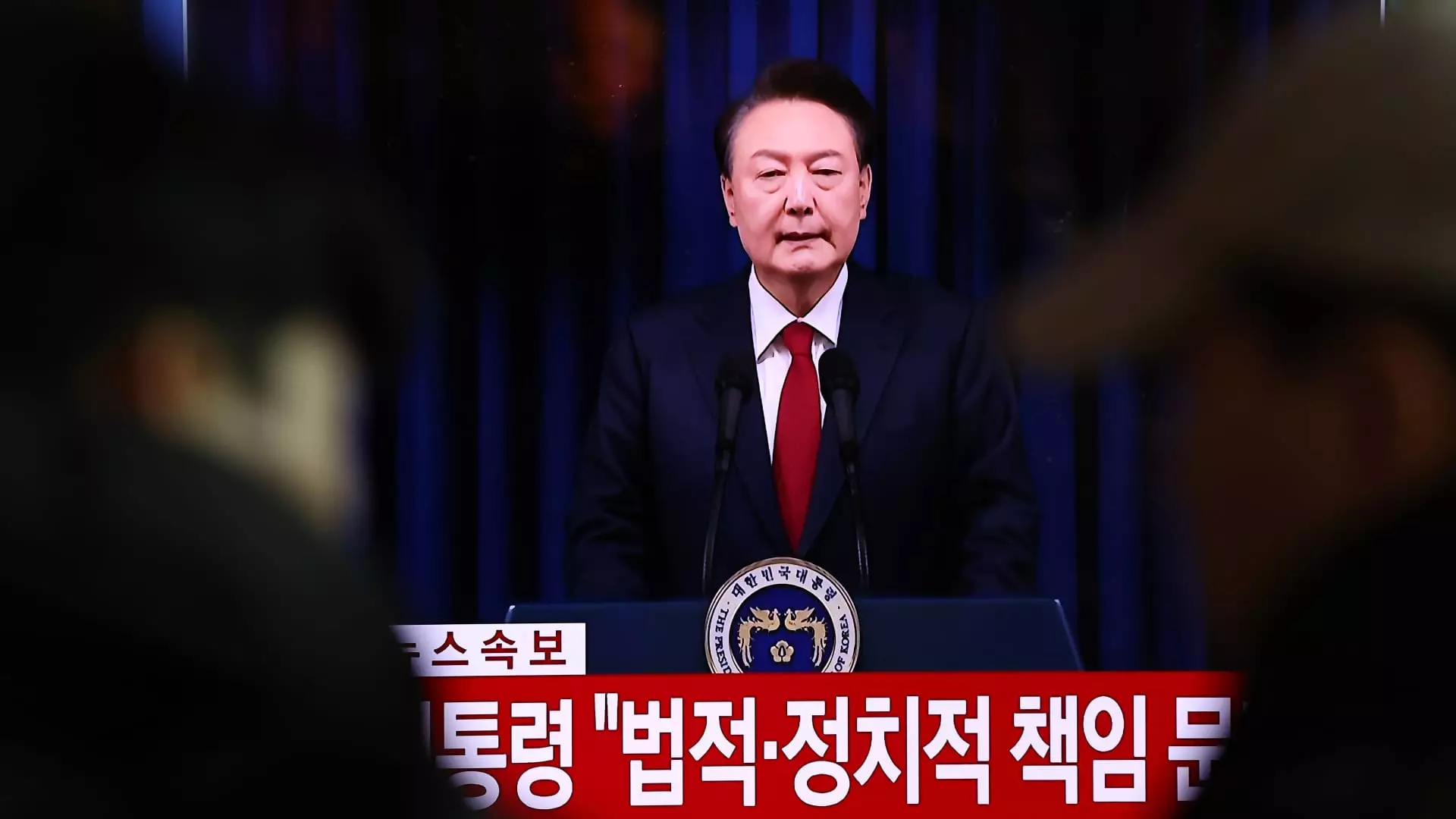The recent impeachment of South Korea’s President Yoon Suk Yeol marks a pivotal moment in the country’s political landscape and raises intense questions regarding governance, public sentiment, and the broader economic implications. Following Yoon’s controversial brief declaration of martial law in early December 2023, opposition lawmakers ignited the impeachment process. This event highlights a fundamental instability within South Korea’s political framework and the increasing tension between government authority and democratic principles.
Impeachment proceedings are not new to South Korea, having seen several high-profile cases in the past two decades. Presidents Roh Moo-hyun and Park Geun-hye were both removed following significant scandals. In 2004, Roh faced impeachment over his appointment of a prime minister without legislative approval, while Park was ousted in 2016 amid a massive corruption scandal involving collusion with a confidante. These precedents set a challenging backdrop for Yoon, an incumbent who had barely established his presidency when the clouds of impeachment began to gather overhead.
The catalyst for this latest impeachment vote was Yoon’s audacious attempt on December 3 to impose martial law—a decision that shocked not only lawmakers but also the general populace. Citing national security threats, he justified this drastic measure as necessary to “protect the constitutional order” and dismantle what he termed pro-North Korean factions. Yet, within a mere six hours, Yoon rescinded the directive, raising eyebrows about the integrity of his leadership and genuine intentions. The belated nature of this decision, coupled with public uproar, made it clear that Yoon’s hold on power was at significant risk.
After a failed impeachment attempt on December 7, wherein the ruling People Power Party (PPP) failed to rally sufficient votes, the political tide shifted. Allied lawmakers began to fracture, and support for Yoon within the party diminished, leading to PLA leader Han Dong-hoon’s unexpected endorsement for impeachment discussions. This shift accentuated fractures within the PPP and revealed growing disenchantment with the president’s handling of crises.
Yoon’s popularity has plummeted significantly, evidenced by his approval rating, which nosedived to an alarming 17.3% following the martial law incident. Such a decline indicates increasing dissatisfaction among the public, exacerbated by a series of scandals involving his spouse, Kim Keon Hee. These developments not only underscore the challenges Yoon faces in maintaining public trust but also mirror a broader sentiment of disillusionment with the prevailing political order.
The growing chorus of calls for Yoon’s resignation from both opposition forces and civil society underscores an urgent demand for accountability and transparency. Even as Yoon’s presidency is fraught with turmoil, his declarations of a commitment to “fight until the end” expose a troubling disconnect between leadership rhetoric and public sentiment. Amidst ongoing protests, his inability to connect meaningfully with citizens’ concerns raises questions about his effectiveness and the legitimacy of his governance.
In the midst of this political upheaval, South Korea’s economy bears the brunt of uncertainty. The chaos has sent financial markets spiraling, accentuating investor concerns over the stability of one of Asia’s largest economies. However, amid this volatility, analysts suggest that the long-term outlook may not be as dire as initially feared. John Woods, chief investment officer at Lombard Odier, indicated there is an “end game” in sight for this crisis, suggesting that observers might soon refocus their attention on local earnings and market recovery.
What remains clear is that South Korea’s economic prospects, especially in critical sectors such as technology and artificial intelligence, continue to be a point of interest. As the International Monetary Fund projects a growth rate of 2.5% for the country, the resilience of its fundamental economic strengths will be put to the test in the face of political unrest.
The ongoing impeachment saga surrounding Yoon Suk Yeol reflects deep-seated issues within South Korea’s political framework, characterized by instability, disillusionment, and crucial ethical questions. As the nation approaches another election cycle in the aftermath of these developments, what remains to be seen is whether the impending changes will bring a rejuvenated political environment aligned more closely with the will of the citizens. The events unfolding now may set critical precedents not only for South Korean politics but also for democratic governance in the region overall.


Leave a Reply